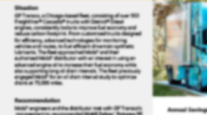States Struggle to Pass Fuel-Tax Hikes in 2016

This story appears in the April 25 print edition of Transport Topics.
Eleven states considered raising fuel taxes this year, but none have yet passed legislation, unlike last year, when eight states did.
Proposed fuel-tax hikes failed in Hawaii, Indiana, Mississippi and West Virginia. Seven other states haven’t come to a decision.
In Alaska, for example, a deficit caused by sharp drops in oil prices prompted Gov. Bill Walker to propose nearly doubling the fuel tax to 16 cents per gallon from 8.95 cents. The bill has not gained much traction; however, the Legislature there decided to extend its session beyond its scheduled April 17 closing.
Alison Black, chief economist for the American Road & Transportation Builders Association, said fuel taxes were raised 25 times from 1997 to 2012.
Jim Tymon, chief operating officer at American Association of State Highway and Transportation Officials, said that current lower fuel prices should increase the ability to justify higher fuel taxes “because the impact on the consumer would be lessened.”
Also, states have clarity on the money they’ll receive from the federal government for transportation projects for the first time since 2009 in the wake of the FAST Act signed into law by President Obama in December.
“We know what we’re getting from the federal government now,” said Mark Pleasant, director of planning for South Carolina’s Department of Transportation.
He said that his state will receive $679 million in federal funding, or about 50% of the fiscal 2016 budget. That’s also a 5% increase from last year’s federal amount.
Likewise, Missouri’s DOT is receiving $940 million in fiscal 2016, about 45% of its budget, spokesman Bob Brendel said.
The states that passed fuel-tax increases in previous years did so, either through the Legislature or voters. “Tax increases need to be framed as affirmative investments,” said Robert Puentes, president of the Eno Center for Transportation. “When voters are confronted with specific details about taxes — how much is going to be raised and for what purpose — they’re willing to pay for them.”
Fuel-tax hikes should be more palatable because prices at the pump remain so low, transportation analysts said. The U.S. retail diesel average was $2.165, the Department of Energy said April 18, 61.5 cents cheaper than a year ago.
But it’s not that easy for state legislatures.
In South Carolina, the House of Representatives (which overwhelmingly passed a fuel-tax hike in 2015 that was stymied by the Senate) voted to fund $415 million for transportation without a fuel-tax increase. Gov. Nikki Haley and the Senate want to take $400 million from general revenue annually for transportation. A conference committee from the two chambers is tasked with resolving the dispute before the session’s scheduled close June 2.
A fuel-tax increase is on the table in Missouri, too. The Senate passed a hike of 5.9 cents per gallon, but the House still must act on the measure. It has the support of Transportation Committee Chairman Glen Kolkmeyer, but Speaker Todd Richardson is less enthusiastic. Gov. Jay Nixon is a supporter.
Prospects are brighter in Alabama, where both legislative chambers approved by near-unanimous votes a new transportation funding formula that calls for a 6 cents-per-gallon increase in gas and diesel taxes. The increase has the support of Gov. Robert Bentley. Alabama’s session is set to close May 16.
In Minnesota, a fuel-tax hike supported by Gov. Mark Dayton is being pushed by Senate Transportation and Public Safety Committee Chairman Scott Dibble, but the hike faces opposition in the House. Minnesota’s session ends May 23.
In contrast, California’s legislative session lasts another four months, but proposed fuel-tax hikes in the Senate (22 cents on diesel, 12 cents on gas) and the Assembly (30 cents on diesel, 22.5 cents on gas) will need a two-thirds majority vote in both chambers for passage.
New Jersey’s taxes of 17.3 cents on diesel and 14.5 cents on gas are the third- and second-lowest in the nation, respectively. But funding to keep them low is in jeopardy. Acting DOT Commissioner Richard Hammer announced that the state’s Transportation Trust Fund will run out of money this summer.
The start of the 2017 fiscal year, July 1, is the date when all revenue from the state gas tax will be used to pay off debt, leaving no cash for new construction projects. But Assembly Speaker Vincent Prieto recently said that he won’t allow a vote on Gov. Chris Christie’s proposed repeal of the state’s estate tax unless it’s balanced by fixing the Trust Fund.




